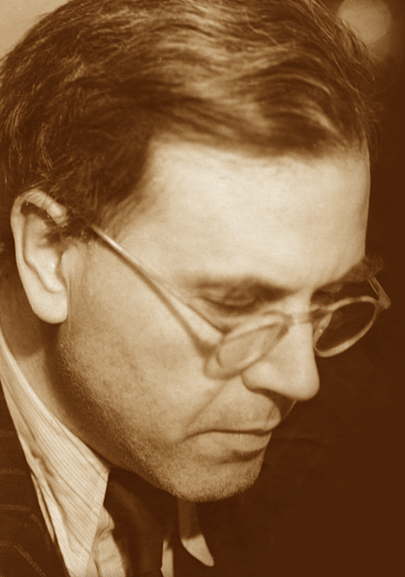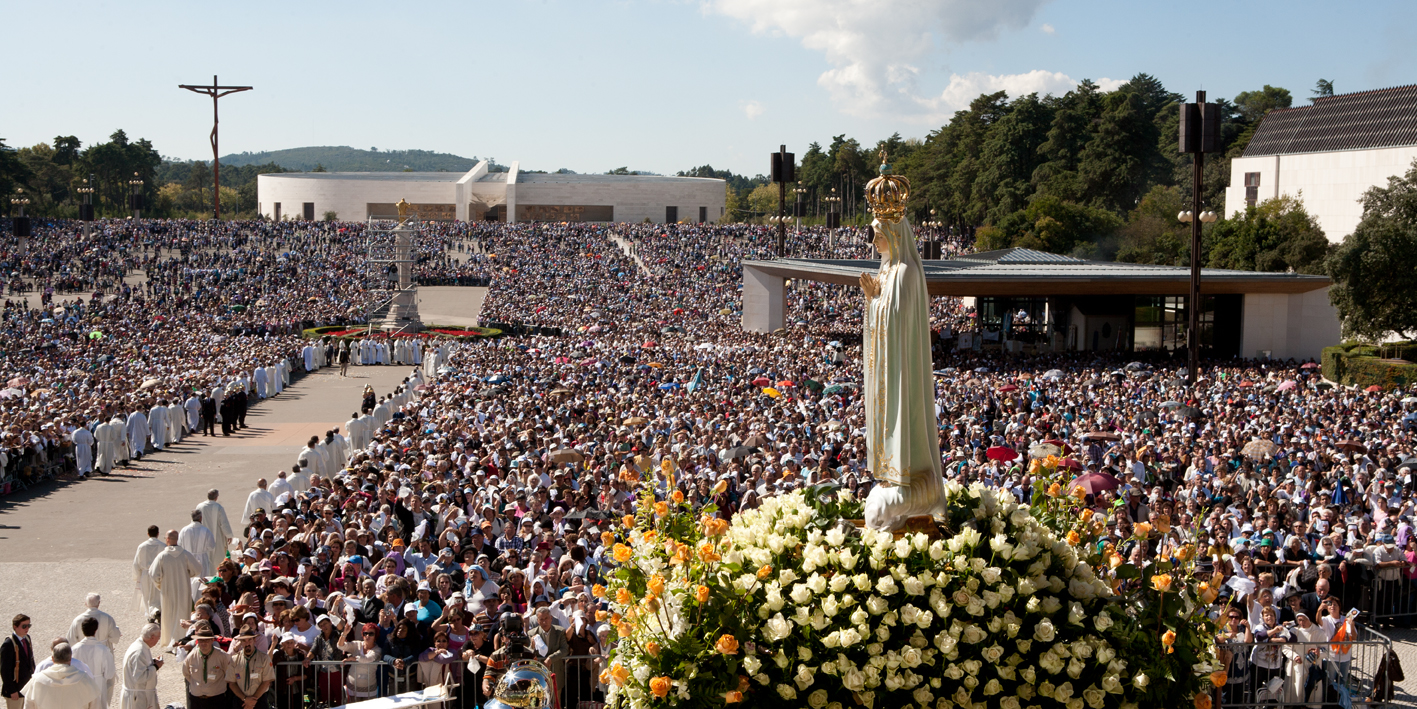
Browsing through the February 1943 edition of Liturgical Arts Quarterly, I came across an article written by Dietrich von Hildebrand, the title of which will no doubt have something of a contemporary ring to it from our own perspective: "The Spirit of Continuity in the Liturgy"
The article is too lengthy to quote in its entirety, but I thought it might be of interest as a supplement to our own particular considerations of continuity today.
The article is too lengthy to quote in its entirety, but I thought it might be of interest as a supplement to our own particular considerations of continuity today.
One of the deepest, and essential, marks of man as a spiritual person is his continuity. This means not only the faculty of remembering the past, of looking back on what we have formerly known and experienced, but also the fact of knowing oneself to be one through the stream of time and moments filled with the most varied contents. It means that man possesses not only one stratum of experience, the actual "here and now," which embraces only a limited content, but that he can retain on a deeper, super-actual stratum the knowledge of facts, values and the response to them. Continuity is a presupposition for being a full person, for the development and abundance of the person, as well as for all responsibility. If a man lived only in separate moments, without any link between them, if he did not know himself as the same being in the past and present, if all that he experienced and accomplished and all that was revealed to him sank back into nothingness before the actual contact with the new "now," he would be only a bundle of disconnected experiences. He would be deprived of the dimension of depth...
There are unconscious men, always completely absorbed in the present moment. What has happened to them in the past, what moved and filled them, fades away as soon as a new, strong impression takes possession of them. They are capable of feeling these strong impressions, but these are not rooted in them, they do not become their unalterable possession and a background against which new impressions are juxtaposed without order and selection. The present always dominates the past, even when the content of the present is far more insignificant and mediocre. These people glide through life without developing from their contact with values and their experience of joys and sorrows. When their attention is drawn to their defects, they admit them for the moment, but in the next moment everything is engulfed again. Such men naturally are not really awake, in spite of the force and vivacity of their impressions... These men are dominated mostly by "fashion"; what is "in the air" at the present moment in their narrower and larger surroundings conquers them easily.
Beside this type of extreme discontinuity we find another type of man who is accessible to deep experiences, whom the truths and values already acquired have become a durable possession, but who does not resist the onrush of intense new impressions; the inner content accumulated in the past does serve as a measure for these new impressions. These are the people who do not let what they possess in the depth of their souls become the principle of formation for the present situation... The power of the present and the freshness and power of new, unusual experiences exercise too great an influence upon them... The man with a spirit of continuity, on the contrary, maintains super-actually all truths and values. He observes fully the response-to-value attitude; he possesses a complete understanding of the realm of values and their demands; he fully penetrates them. Thus the values he has grasped and maintained become the natural background against which all new impressions stand out; not only do they arise against the background, but also their compatibility with it must be proved. The enchantment and glamor of novelty has as little hold on the man with a sense of continuity as has routine. The familiar and customary cease to influence him as soon as they are discovered to be valueless. The new, the freshly experienced, will not exercise attraction for him whenever it is acknowledged to be without value...
[...]
The organic development of divine life within us, in which we are allowed to participate through baptism, and which attains its full personal reality in sanctification, necessarily presupposes continuity. If Christ must become the "form" of our souls, even as the soul is the "form" of our body, our eyes must be super-actually fixed on God. In every moment of our lives, Christ must be the cornerstone against which all that is contrary to God is to be shattered. He must be the light in which everything is seen and known, the measure which determines whether or not a thing should have a place in our life. Without continuity there is no organic ripening of the person, no up-building, ascension; life remains a perpetual issuing forth, a constant beginning...
More than anything else the spirit of continuity penetrates the Liturgy and dispenses its spirit to those who live in it. The daily repetition of the holy sacrifice of the Mass and the Hours is a specific expression of continuity, of the sense of necessity for always sacrificing to God, Who contains all values, so as to praise and thank Him. The frequent repetitions in the liturgy, which certain people consider unnecessary and wearisome, testify precisely to this continuity. The Gloria Patri must accompany each psalm because our prayer must again and again turn expressly to the mystery of mysteries, the Trinity... How often is the Deus in adjutorium meum intende repeated? What a spirit of continuity in the eternal actuality of this supplication! How often does the Confiteor return! The continually renewed actualization of revelation educates us in continuity. How constantly is the Alleluia repeated, and the Hodie of Christmas. In the Liturgy we are immersed in the realm of eternity, where there is no room for the habitual or the sensational novelty. The invariable resplendence of the God of eternal beauty and holiness, the eternally new suavitas of the God-Man is always equally actual, always equally thematic.
What another expression of continuity in the recurrent rhythm of the liturgical year! Every year there is the same unfolding of longing in Advent, the same rejoicing and thanksgiving at Christmas, the same transfigured jubilation at Easter! What a spirit of continuity in the fact that a saint who lived two thousand years ago is venerated today as much as a recently canonized saint! ... In the liturgy there truly breathes the spirit of God "for a thousand years in thy sight are as yesterday..." What a continuity in the firmly patterned expression of all the prayers which we constantly repeat! It is not necessary for us to speak new words to God, but only to maintain the objectively adequate, "valid" word in the prayer of the Church and to participate in it always more deeply and originally.
Thus the liturgy itself is a great actualization of continuity, a participation in the adoring love of the Son for His heavenly Father, which always remains the same. The man who lives in the liturgy organically acquires the spirit of continuity; his relationships with all true values which speak to us of God's glory also are continuous; likewise his relationships with other men, the community, knowledge, the world of beauty, nature, and art.
Through continuity is achieved the true simplicity of the person which in spite of all differences manifests ultimate unity because it maintains the deepest and crowning response-to-value, the response to God, which molds all other responses-to-value. In spite of its richness and inexhaustible differentiation, the liturgy is filled with this simplicity. The man formed by the liturgy is simple because he lives from God and performs everything in God, because he performs everything through Christ, with Christ, and in Christ. For him the fascination of the present moment and novelty, or what happens for the first time, has lost its power of dispersion. Over his life is written Christus heri, hodie, et in saecula.
Related to Dietrich von Hildebrand, the Dietrich von Hildebrand Legacy Project has recently announced the following forthcoming conference which it has asked us to make mention of:
The Christian Personalism of Dietrich von Hildebrand:
Exploring His Philosophy of Love
Convened by the Dietrich von Hildebrand Legacy Project in collaboration with the the School of Philosophy of the Pontifical University of the Holy Cross
Rome, May 27-29, 2010
The Christian Personalism of Dietrich von Hildebrand:
Exploring His Philosophy of Love
Convened by the Dietrich von Hildebrand Legacy Project in collaboration with the the School of Philosophy of the Pontifical University of the Holy Cross
Rome, May 27-29, 2010
fonte:new liturgical movement

 inundado por um mistério de luz que é Deus e N´Ele vi e ouvi -A ponta da lança como chama que se desprende, toca o eixo da terra, – Ela estremece: montanhas, cidades, vilas e aldeias com os seus moradores são sepultados. - O mar, os rios e as nuvens saem dos seus limites, transbordam, inundam e arrastam consigo num redemoinho, moradias e gente em número que não se pode contar , é a purificação do mundo pelo pecado em que se mergulha. - O ódio, a ambição provocam a guerra destruidora! - Depois senti no palpitar acelerado do coração e no meu espírito o eco duma voz suave que dizia: – No tempo, uma só Fé, um só Batismo, uma só Igreja, Santa, Católica, Apostólica: - Na eternidade, o Céu!
inundado por um mistério de luz que é Deus e N´Ele vi e ouvi -A ponta da lança como chama que se desprende, toca o eixo da terra, – Ela estremece: montanhas, cidades, vilas e aldeias com os seus moradores são sepultados. - O mar, os rios e as nuvens saem dos seus limites, transbordam, inundam e arrastam consigo num redemoinho, moradias e gente em número que não se pode contar , é a purificação do mundo pelo pecado em que se mergulha. - O ódio, a ambição provocam a guerra destruidora! - Depois senti no palpitar acelerado do coração e no meu espírito o eco duma voz suave que dizia: – No tempo, uma só Fé, um só Batismo, uma só Igreja, Santa, Católica, Apostólica: - Na eternidade, o Céu!